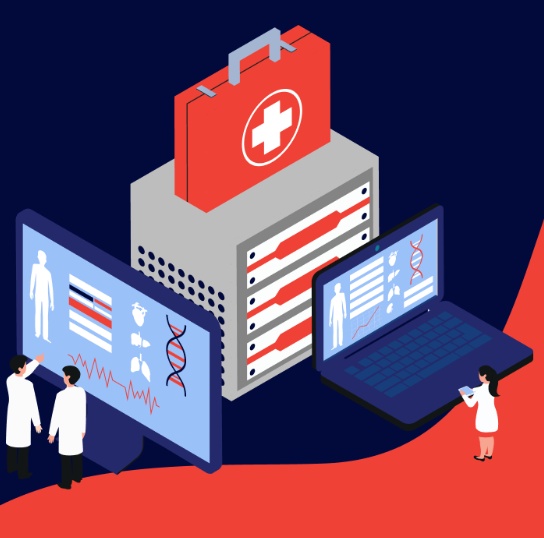What Service-Based Businesses Can Learn from Healthcare Automation
- 293 Views
- admin
- 06/10/2025
- Social Media
Technology is transforming industries across the board, and healthcare is an example of how even highly personal sectors can benefit from automation. Although healthcare is known for its patient-centered approach, automation has quietly revolutionized administrative and operational tasks, helping professionals streamline their processes, improve patient experiences, and minimize human error. From appointment scheduling to diagnostic support, automation is enhancing efficiency and allowing providers to focus more on patient care.
Service-based businesses such as marketing agencies, law firms, real estate offices, and consultancy practices share many challenges with healthcare, including repetitive tasks, extensive documentation, client communications, and the need to balance personalization with efficiency. Automation, as demonstrated in healthcare, can offer valuable lessons to these industries for improving productivity and client satisfaction. Here’s how your business can leverage automation for better outcomes.
1. Automate Repetitive Tasks
In healthcare, professionals deal with an overwhelming amount of paperwork, appointments, and patient data. To free up time and reduce burnout, many healthcare providers have implemented automated solutions. Some examples include:
- Online scheduling tools that let patients book appointments without the need for staff intervention.
- Automated billing systems that ensure accuracy and reduce delays.
- Follow-up reminders that keep patients informed without requiring additional work from staff.
One key area where automation shines is medical transcription. Rather than spending hours typing notes from patient interactions, healthcare professionals now use transcription software to generate accurate notes automatically, reducing errors and saving time.
For your business, automating repetitive tasks can have a similar impact. Consider implementing:
- Scheduling tools to manage client appointments
- Automated invoicing systems
- Pre-written templates for frequent client inquiries
These small automation steps can save hours each week and help your team focus on more valuable tasks.
2. Personalization Doesn’t Have to Be Manual
Automation is often viewed as impersonal or robotic, but in healthcare, it actually supports a more personalized approach to patient care. Automated systems can send reminders for upcoming check-ups, provide post-visit instructions, and even send surveys to gather feedback. These systems ensure that patients feel supported and cared for, all while reducing administrative load on the staff.
Service businesses can apply this same concept. Automation can enhance the client experience without sacrificing the personal touch. Some ideas include:
- Sending welcome emails to new clients
- Setting up automated check-ins during long-term projects
- Using feedback surveys after delivering services
With the right tools, you can maintain meaningful client relationships without overwhelming your team with manual follow-up tasks.
3. Leverage Data to Improve Your Operations
Automation in healthcare has enabled a more data-driven approach. Hospitals and clinics can gather real-time information to track:
- Which treatments yield the best results
- Where patient wait times are longest
- How many patients miss follow-up appointments
This data helps healthcare providers make informed decisions, improving both service and care quality. Similarly, your business can use automation to gather data that can optimize operations, such as:
- Tracking how long certain tasks or projects take
- Analyzing which services are most profitable
- Identifying recurring issues clients face
Tools like analytics dashboards or automated reporting systems can provide you with valuable insights, allowing you to make smarter decisions and better serve your clients.
4. Minimize Errors and Mitigate Risk
In healthcare, small errors can have severe consequences. That’s why many healthcare providers use automation to reduce risk. Automation tools can:
- Flag dangerous medication interactions
- Ensure medical records are accurate and up to date
- Track changes to patient data through audit trails
These tools help maintain compliance, improve accuracy, and build trust with patients.
Similarly, service businesses in industries like law, finance, or insurance can benefit from automation to minimize mistakes and mitigate risks. Consider using:
- Document templates with required fields
- Digital signature tracking
- Automated backups for client communications
By automating these processes, you can reduce costly errors, ensure compliance, and maintain a high level of professionalism.
5. Automate to Support Your Team, Not Replace Them
A common concern about automation is that it will replace human workers. However, in healthcare, automation is designed to support professionals, not replace them. By automating routine administrative tasks, healthcare providers can spend more time focusing on direct patient care, which strengthens their connection with patients and enhances the overall experience.
Service businesses should adopt the same philosophy. Automation is not about cutting corners but about freeing up your team to focus on more meaningful, client-facing tasks. Use technology to support your people and empower them to provide better service.
Conclusion: Start Small, Think Big
If an industry as personal as healthcare can embrace automation and enhance service, your business can too. Begin by identifying a few tasks that are repetitive and time-consuming, and explore tools that can automate them. Whether it’s scheduling, communication, or data tracking, automation can help your business run more efficiently without sacrificing quality.
There’s no need for a major overhaul. By introducing the right tools and adjusting your mindset, you can create a service-based business that’s faster, more accurate, and still deeply personal.
Recent Posts
- How AI is Revolutionizing Architectural Design: A Look at Tools, Trends, and the Future
- Streamlining Cyber Risk Assessments Through Automation
- Understanding the Difference Between Blockchain and Distributed Ledger Technology
- Is Bitcoin Mining Still a Viable Venture in 2025?
- Exploring AI: Unveiling Possibilities, Challenges, and Future Implications

